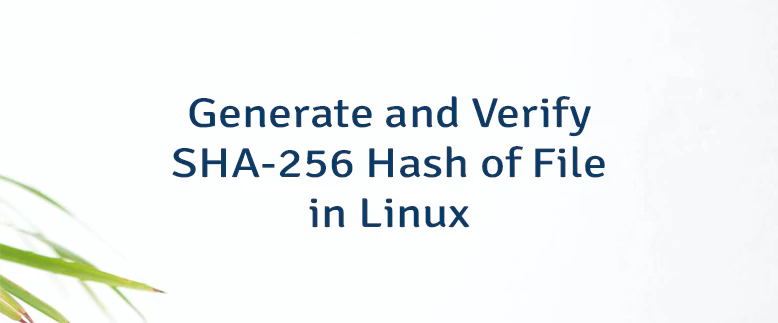SHA-256 is a cryptographic hash function that can be used for verifying file integrity. For example, to check that the file has not been altered during transfer over the network. This tutorial provides example how to generate and verify SHA-256 hash of file in Linux.
Generate SHA-256 hash
In order to test, create a new file:
printf 'Hello world' > test.txtLinux provides sha256sum command to generate and verify SHA-256 hash. Run the following command to generate SHA-256 hash of file and print result in the terminal:
sha256sum test.txtOutput:
64ec88ca00b268e5ba1a35678a1b5316d212f4f366b2477232534a8aeca37f3c test.txtResult can be written to a file by using > redirection operator:
sha256sum test.txt > test.sha256Verify SHA-256 hash
File integrity can be verified using -c option:
sha256sum -c test.sha256Output:
test.txt: OKChange content of a file by appending additional text:
printf 'Hi' >> test.txtWe get the following output when SHA-256 hash of a file was verified again:
test.txt: FAILED
sha256sum: WARNING: 1 computed checksum did NOT match



Leave a Comment
Cancel reply